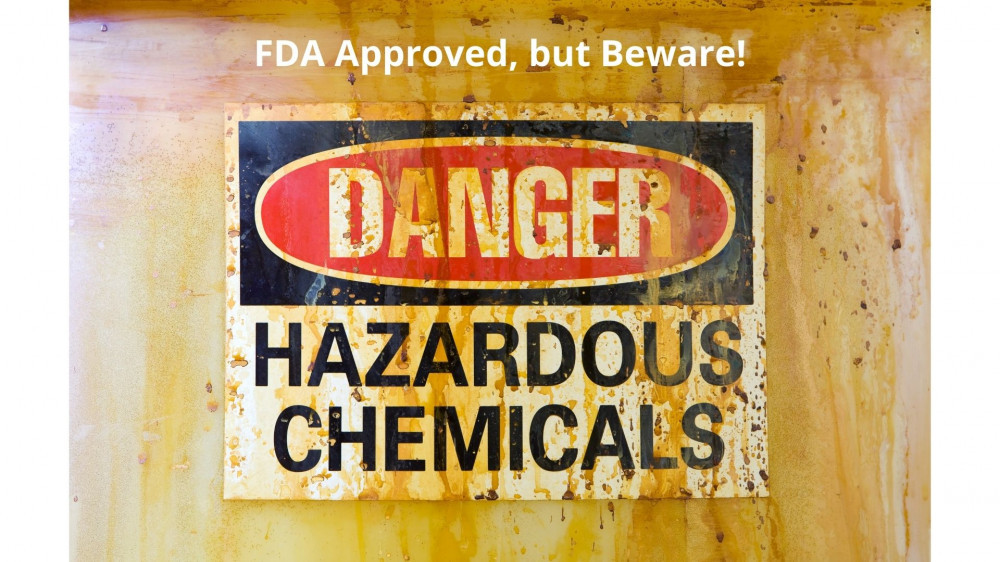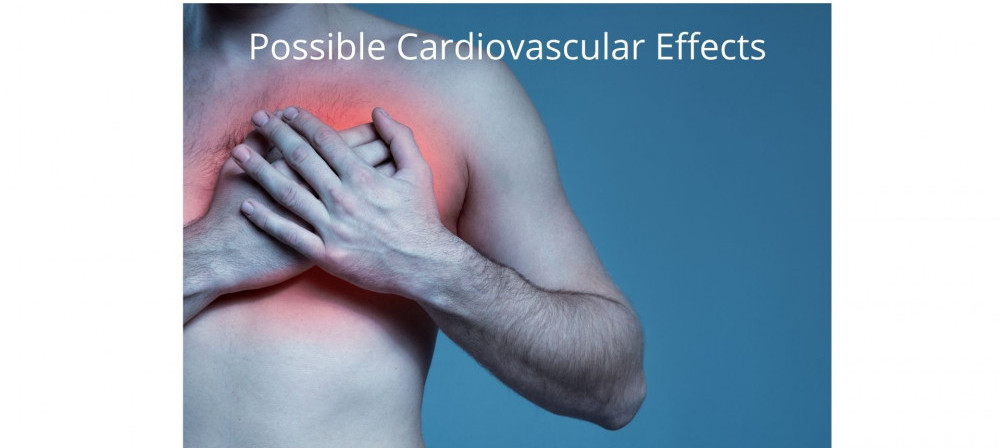The Potential Dangers of Decaffeinated Coffee can Vary
The dangers commonly associated with decaf coffee are directly related to chemicals that are sometimes used, but these aren’t the only potential dangers.
In fact, possibly ingesting a minimal amount of the chemicals left over from the decaffeination process might not be as concerning as some other ways that drinking decaf coffee can affect our health.
Also, just as there are a various ways that decaf coffee can be harmful, the effects can vary among different people.

Decaffeination Methods and the Chemicals Used in Some
There are several decaffeination methods that can be used, and not all companies specify the method used. One of these decaffeination methods involves chemicals that can remain in the coffee in trace amounts.
These chemicals that may be present in decaf coffee are mentioned in the Code of Federal Regulations, under the heading Solvents, Lubricants, Release Agents, and Related Substances (21CFR173, Subpart C).
This is a list of chemicals I would expect to be mentioned in OSHA (Occupational Safety and Health Administration) regulations, not in FDA (Food and Drug Administration) regulations.
Two specific chemicals are mentioned in 21CFR173, ethyl acetate and methylene chloride.
Apparently ethyl acetate isn’t considered as potentially dangerous, since some general conditions are specified without mentioning a maximum amount (“may be used safely in food in the following conditions: …”).
Methylene chloride is only permitted in minuscule amounts, under one one-thousandth of one percent (this can be stated also as less than 10 parts per million).
Differences in Perspectives About Decaffeination Chemicals
Not everyone perceives the same dangers from the chemicals mentioned above.
Among those most concerned is the Clean Label Project. This non-profit organization states in their mission that they “are committed to changing the definition of food and consumer safety through the use of data, science, and transparency.”
They have tested the coffee of some major brands for traces of methylene chloride, and the results are available on their website.
From the information in the section above, you know that the FDA has a different perspective on “the definition of food and consumer safety.”
In my opinion, it’s up to each individual to make their own determination on this matter based on what they consider to be the appropriate perspective.
Possible Health Consequences of Drinking Decaf Coffee
The potential harmful effects of drinking decaf coffee have been studied somewhat, though decaf coffee overall isn’t as widely researched as regular coffee.
There is some general agreement that there is enough evidence to raise some reasonable concerns. I’ll leave it up to decaf coffee drinkers (and those considering drinking decaf coffee) to come to their own conclusions regarding the findings.
My personal perspective is that I wouldn’t switch to decaf unless I had a compelling reason to do so, but then again I wouldn’t discourage anyone from drinking it who considered it safe to consume.
Those with particular concerns, such as those who drink decaf because of cardiovascular conditions (and consequently are looking to minimize aggravating the conditions due to the stimulant effects of caffeine), will likely want to obtain more information on these matters than the average person.
While drinking decaf will indeed help minimize the caffeine that a person consumes, decaf coffee has been linked to some negative effects on cardiovascular health.
I will be mentioning more about this below, and I will also mention several other potential harmful health effects.
Cardiovascular
For those interested in learning more about the effects that decaf coffee can have on the body, there are a number of useful articles in websites about health, medicine, science, and other related areas.
I believe that this article on decaf coffee side effects does a good job of summarizing technical information so that it’s more easily understood by those who don’t have a background in the fields mentioned above.
For example, it explains how drinking decaf coffee can result in higher levels of bad cholesterol and an associated protein, which can lead to heart problems.
Other
Besides the cardiovascular effects mentioned above, decaf coffee consumption has been linked to physiological effects on bones (osteoporosis) and joints (rheumatoid arthritis).
Additionally, drinking decaf coffee has been associated with adverse stomach effects. As with the cardiovascular effects mentioned above, it might be expected that less caffeine would be better for the stomach.
All else being equal, less caffeine would certainly be beneficial in that sense. However, decaf coffee can trigger higher levels of gastrin, which is a hormone that stimulates gastric acid production in the stomach.
Decaf Coffee can Cause a False Sense of Security
Some people choose to avoid caffeine, while others drink decaf coffee because it’s necessary for them to limit caffeine as much as possible. Either way, removing most of the caffeine in coffee neither makes it harmless in general nor completely safe for everyone.
Besides the things mentioned above, there are daily caffeine totals to consider. A single cup of decaf coffee contains relatively little caffeine (compared to the FDA maximum daily recommended amount of 400 milligrams). However, drinking large amounts of decaf coffee and consuming other things that contain caffeine can both contribute to exceeding safe caffeine amounts.
Similarly, perhaps some tiny amounts of lingering chemicals from decaffeination don’t mean much if the coffee is otherwise free of potentially harmful chemicals. These chemicals, though, are far from the only ones that could be present.
Less caffeine per cup of coffee can be a good thing, but the caffeine content in a single cup of coffee is far from the only thing to which we should be paying attention.
Avoiding the Potential Dangers of Drinking Decaf Coffee
The best line of defense against the potential dangers is making good choices based on relevant and useful information.
Input from health care and nutrition professionals can be invaluable, especially when in doubt or when sufficient information isn’t available in other places.
Finally, there are coffee brands that go to great lengths to keep their coffee as healthy as possible. One example is Lifeboost.
Brands such as Lifeboost not only sell certified organic coffee, they also have independent third party labs test their coffee to ensure that it is free of many different types of contaminants.



Hello! As far as I am concerned, I strive to avoid coffee in all its form, including decaf. I was aware of the dansgerous chemicals that decaf contains and I am not surprised about the acid stomach effects. However, I am quite surprised that it also have cardiovascular effects. We shoudl really avoid coffee at all costs!
Thank you for your comment and for your perspective on this. It’s unfortunate that coffee companies and the government don’t communicate more about the potential dangers of decaf coffee. Some brands are healthier than others, but there are still too many hidden dangers overall, in my opinion.
George
I have never liked Decaffeinated coffee, got to have my caffeine but do have many family members and friends that swear by decaffeinated coffee. It is important to know what chemicals are used in are hot and cold beverages that way we can look for alternatives. Going to share this information you have kindly let your blog readers know about with my friends and family.
Thank you for sharing your thoughts on this, Jannette. I’m happy to hear that you have found this information to be useful and that you will be sharing it with others.
Some people have a legitimate need to limit caffeine as much as possible, but otherwise I would say regular coffee is a better option.
George